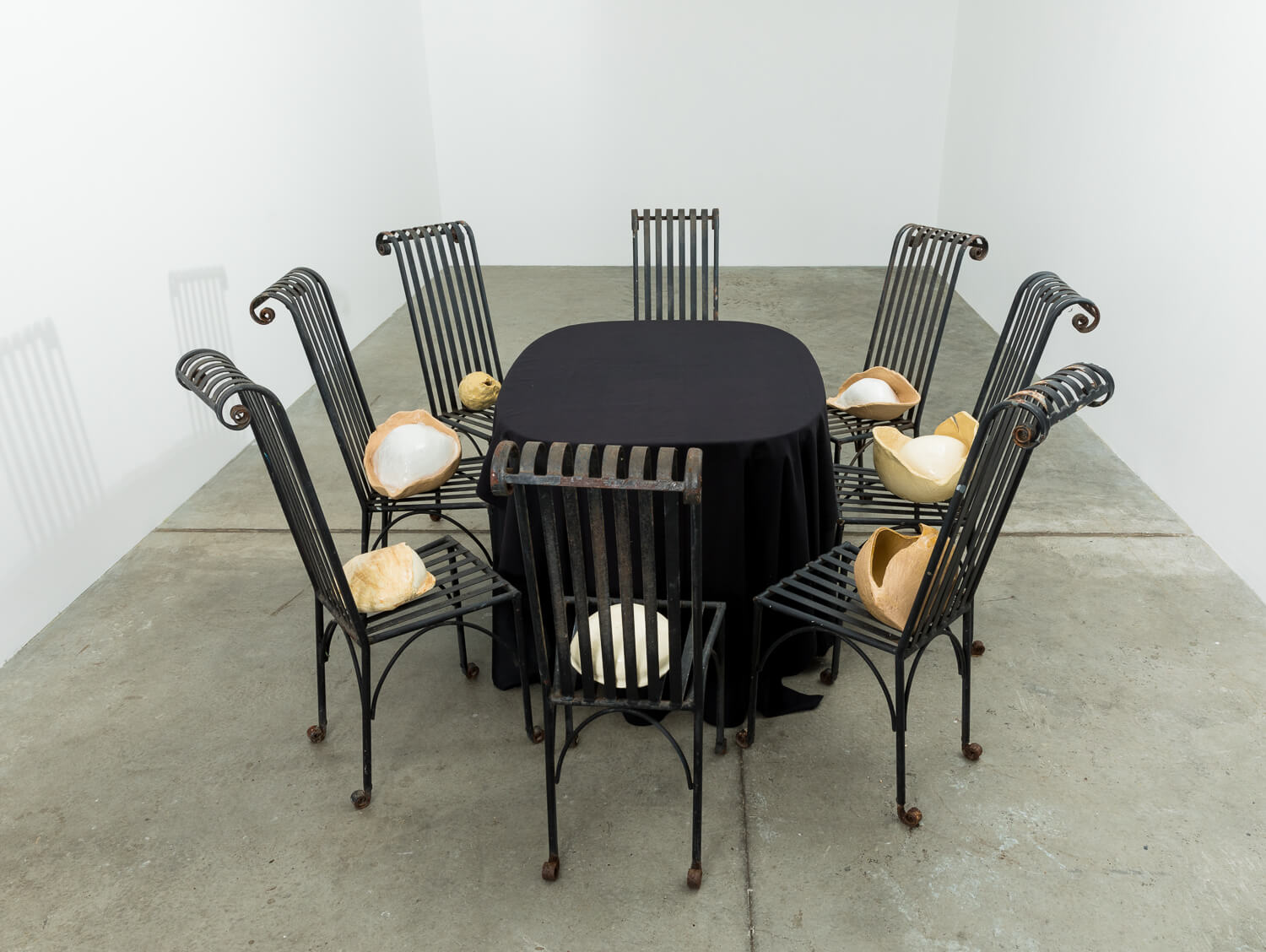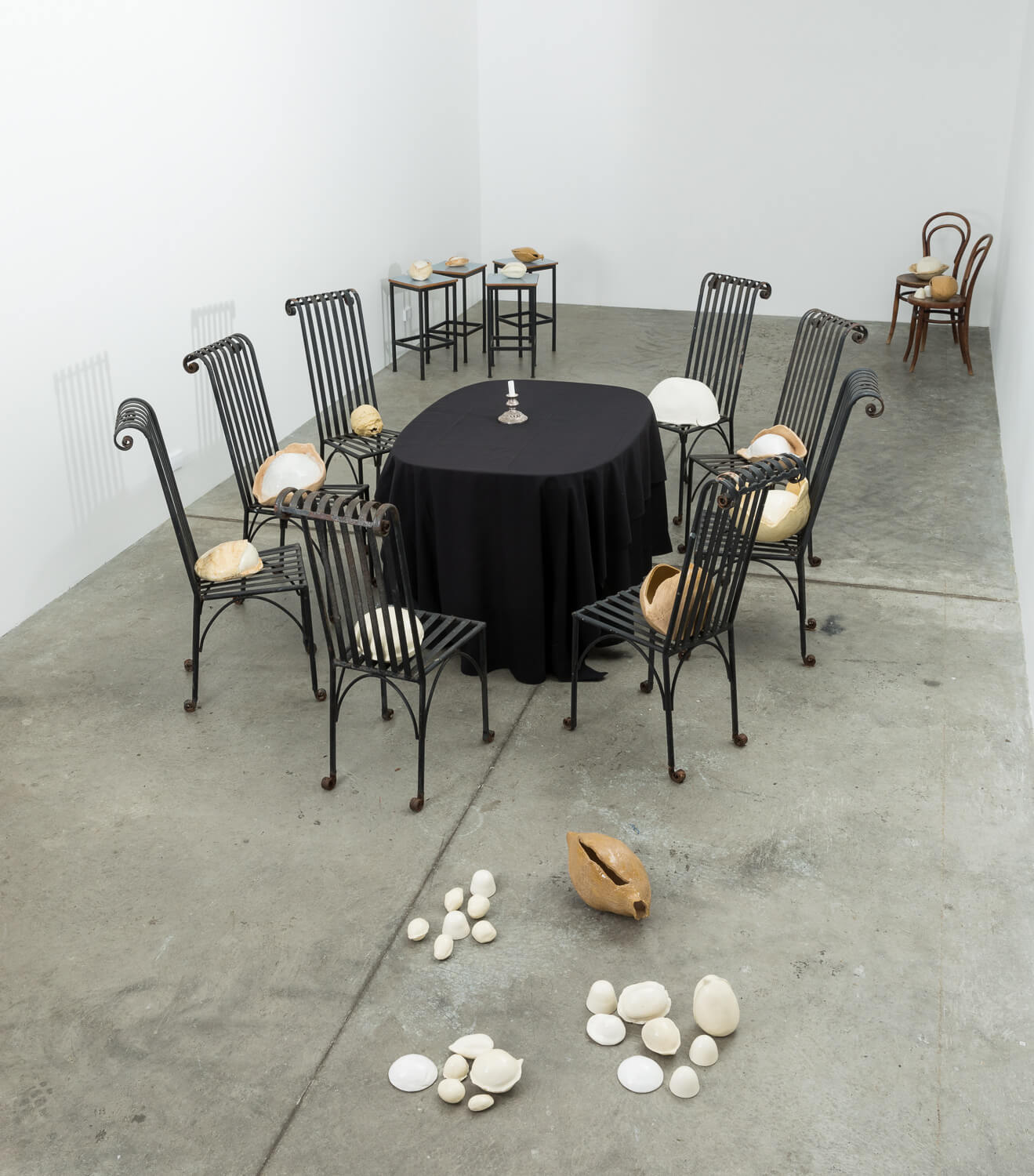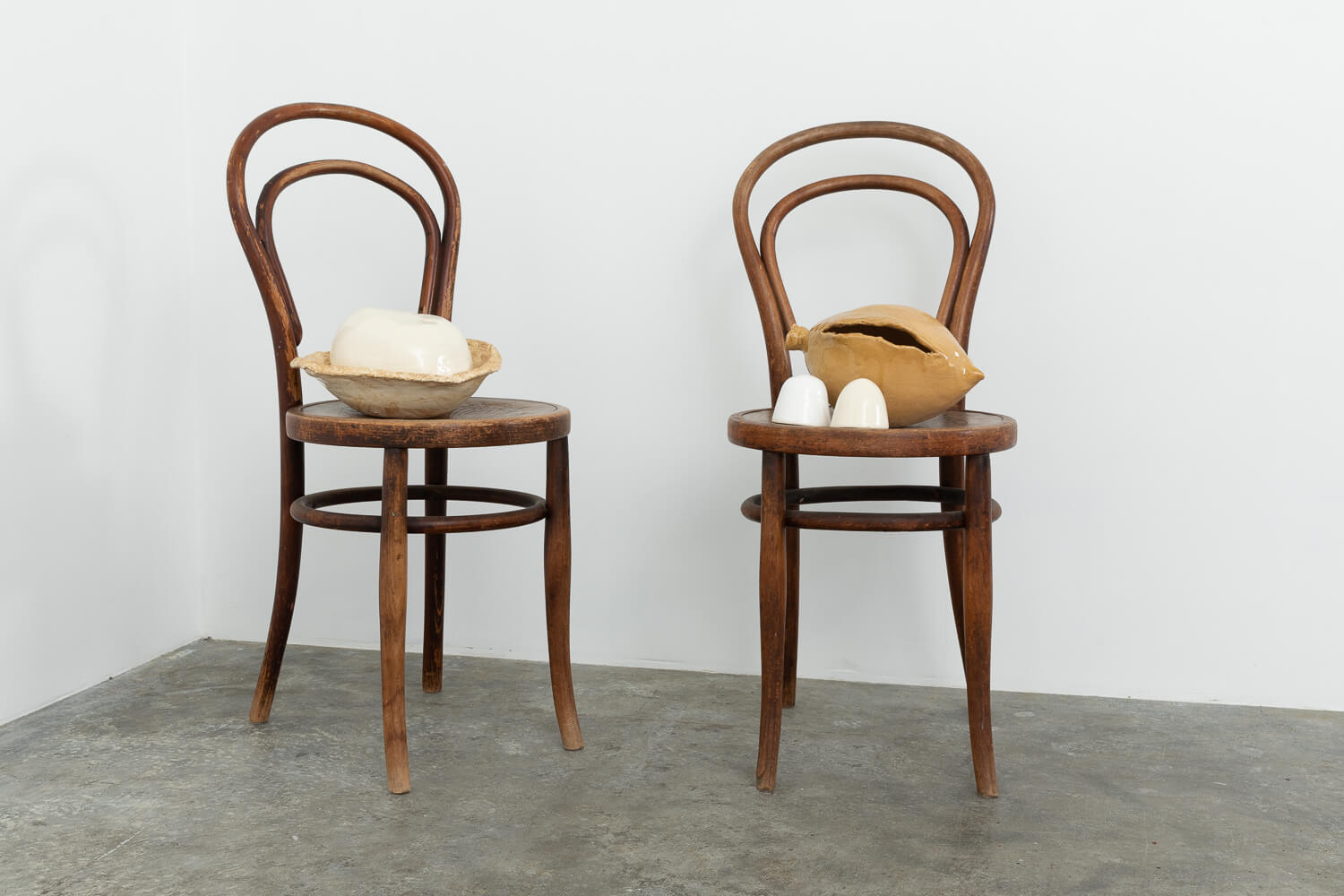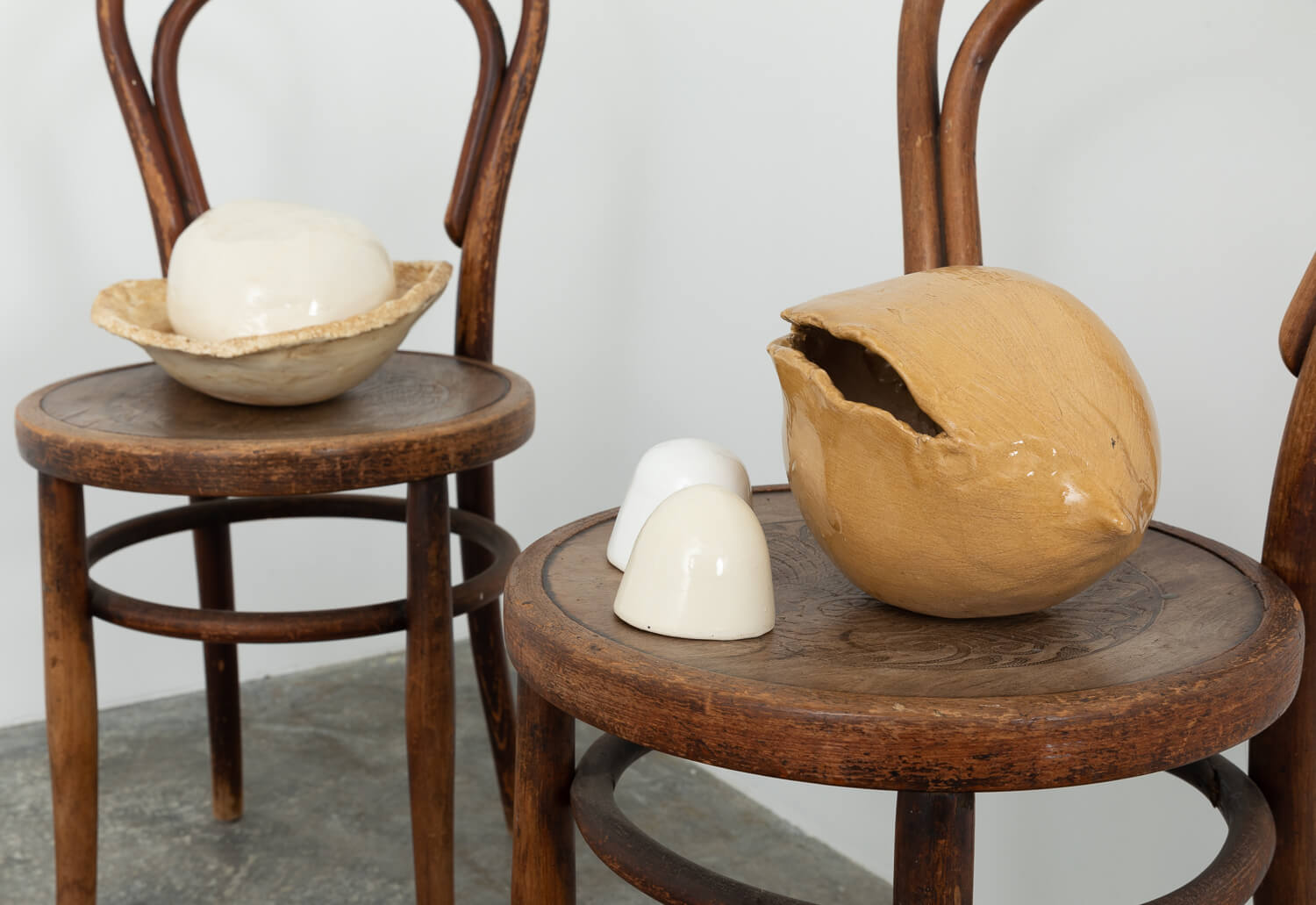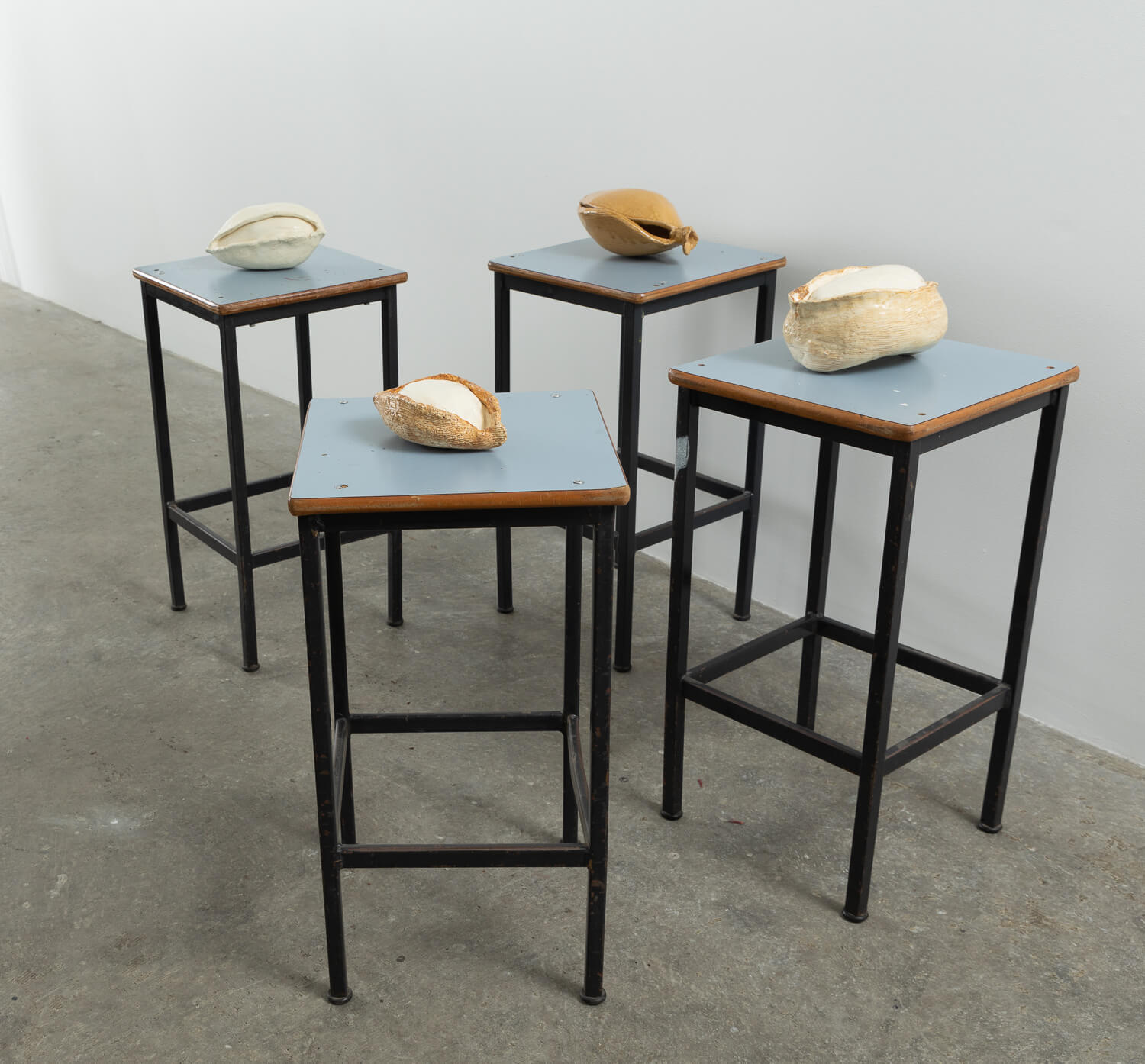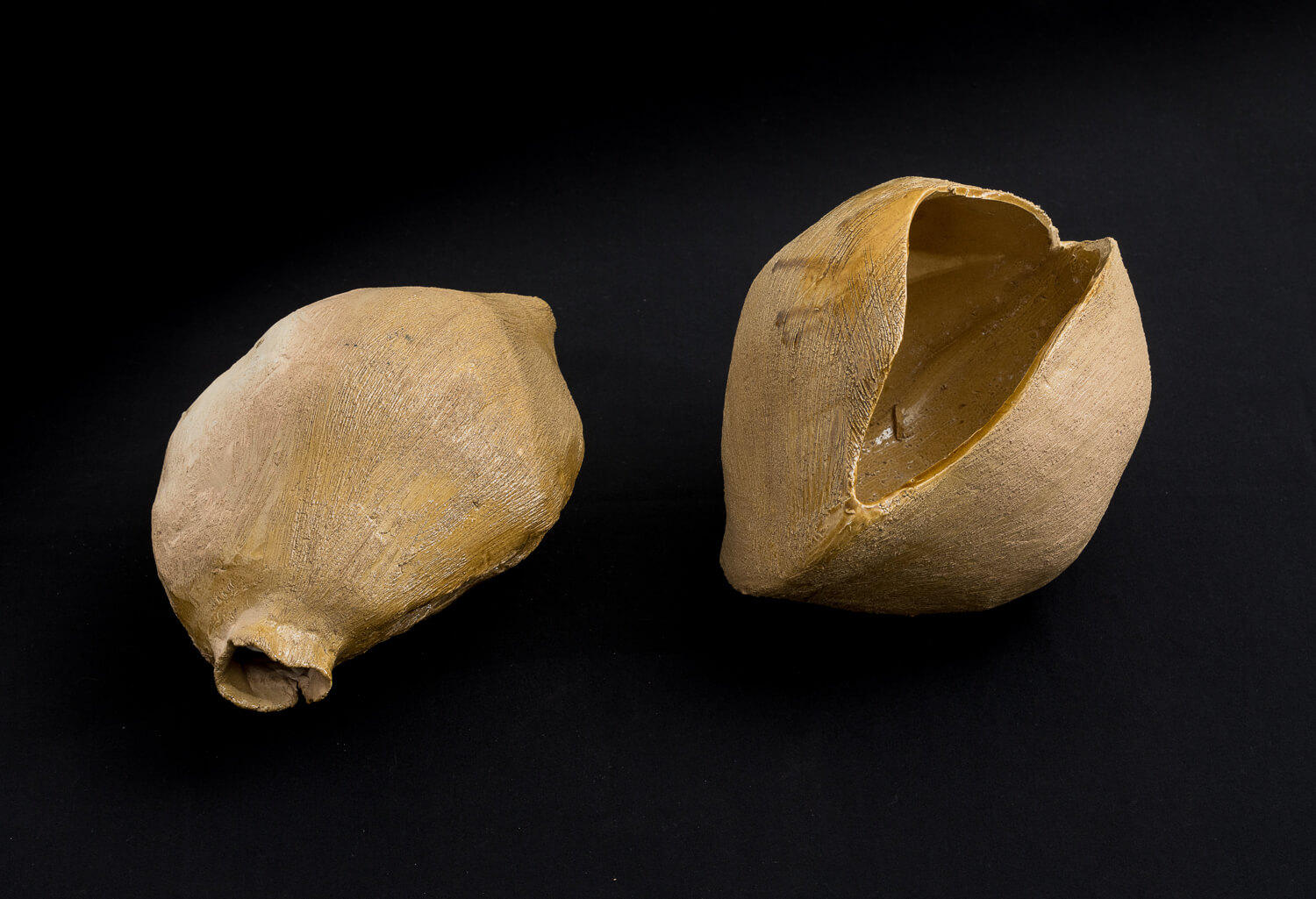FIRST SUPPER, 2020
Dimensions variable
Hand-built oxidation fired earthenware, chairs, table
Dr. Mojgan Habibi has been living and working in the Hunter Region since 2014 and she completed her PhD at the University of Newcastle in 2018. Through her art, she tries to encourage awareness of the importance of tacit political participation in everyday life. She uses metaphors, analogies and seemingly benign subject matter to participate in contemporary political discourse.
The installation First Supper by Mojgan Habibi consists of approximately 30 ceramic forms, ranging in size from that of a human hand to the size of a large ball. All of the works are glazed in gloss light colour for the nuts and a darker clear glaze for the shells. The individual handmade works appear fragile, sensuous and precious.
Habibi has arranged furniture in the gallery in a domestic setting: a dining table, dining chairs, bar and café’ stools. Some of the larger ceramic forms are placed on the chairs, some of the smaller ones are on the floor. The initial impression of the installation is that of a gathering of family or group of friends.
Habibi points out that the remarkable and enduring fertility of local flora and fauna and its history is often disconnected from everyday life. “First Supper” is abstract, broadly referencing figurative and symbolic elements of the macadamia nut, native to Australia. Habibi’s intention with this work is to encourage the viewer to recognise our relationship to nature. The sculpture in this context is a reminder that the macadamia trees have been part of the local landscape since before European colonisation and may still be here after all of us are gone. The romantic reference to idyllic nature is balanced by a possible apocalyptic reference to the results of continued environmental destruction- a world void of people taken over by nature.
She is using this pre- colonial edible nut to discuss a continued connection between the people and land. The native macadamia nut tree existed prior to colonisation and has been subsequently farmed in NSW. The macadamia nut tree has been a food source prior to the arrival of Europeans and is part of the area’s food producing agriculture.
The Port Stephens council website states that: “the local environment was favourable for hunter-gatherer living. The Worimi’s non-destructive lifestyle was in such sympathy with the environment that it had already lasted tens of thousands of years and would have continued long into the future if the white invasion had not taken place.”
This presents an opportunity to start a conversation about the consequences of human intervention and a poetic imagined harmonious future. Always was, always will be.
